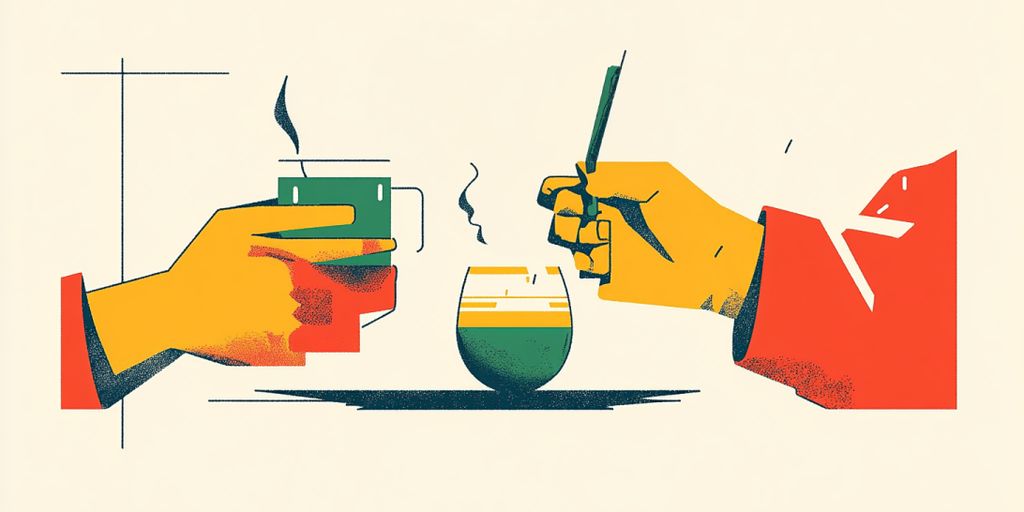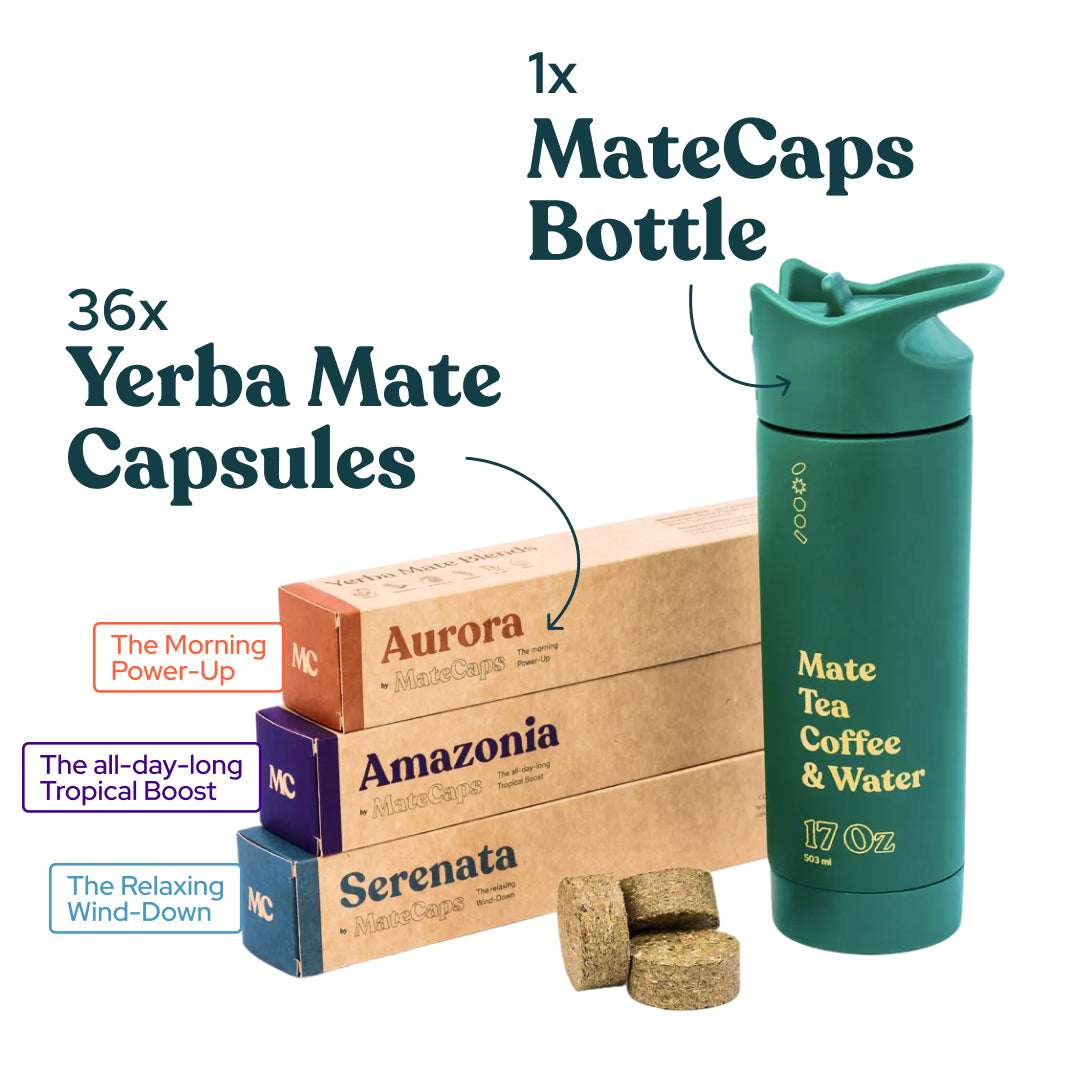
Can You Drink Yerba Mate While Pregnant? Understanding the Risks and Benefits
Yerba mate is a beloved drink in many cultures, especially in South America, but if you're pregnant, you might be wondering whether it's safe to enjoy. This drink is known for its unique mix of caffeine, antioxidants, and nutrients, which can come with both benefits and risks during pregnancy. So, can you drink yerba mate while pregnant? Let's explore what you need to know about this traditional beverage and its impact on pregnancy.
Key Takeaways
- Yerba mate contains caffeine; moderation is key during pregnancy.
- While it has antioxidants that may be beneficial, always check with your doctor first.
- Drinking very hot yerba mate could raise cancer risks; let it cool a bit before sipping.
- Some studies suggest high yerba mate consumption is linked to certain cancers; balance is important.
- Consult a healthcare provider before adding yerba mate to your pregnancy diet.
Understanding Yerba Mate and Its Nutritional Profile
What Is Yerba Mate?
Yerba mate is an herbal tea, super popular in South America. It's made by steeping dried leaves from the yerba mate plant in hot water. You can drink it hot or cold. It's kind of like coffee or tea because it has caffeine, which can help you feel more awake and focused.
Caffeine Content in Yerba Mate
So, how much caffeine are we talking about? Well, it varies, but yerba mate generally has a good kick. Here's a quick comparison:
- Yerba Mate: Around 80mg per cup
- Black Tea: About 47mg per cup
- Green Tea: Roughly 30mg per cup
Keep in mind that these are averages, and the actual amount can change based on how it's brewed. If you're watching your caffeine intake, be mindful of the amount.
Potential Health Benefits
Yerba mate isn't just a caffeine source; it's also packed with nutrients. It contains antioxidants, magnesium, vitamin C, and zinc. These things can help your immune system and overall health. Some studies even suggest it might have helpful effects on cholesterol, weight loss, and inflammation. More research is needed, but it's looking promising. The antioxidants in yerba mate, such as polyphenols, support immune health.
Enjoying a cup of yerba mate can be a simple way to incorporate more antioxidants into your diet, supporting overall health and wellness. Its unique blend of nutrients makes it a popular choice for those looking to boost their antioxidant intake.
Risks Associated with Yerba Mate Consumption in Pregnancy
Caffeine and Pregnancy Concerns
Yerba mate has caffeine, and that's something to think about when you're pregnant. Too much caffeine isn't good for the baby. We're talking potential issues like:
- Low birth weight
- Premature delivery
- Increased heart rate for you
It's easy to go over the limit without realizing it. Moderation is key here.
Cancer Risk and Long-Term Consumption
Now, this is where things get a little scary. Some studies have linked high yerba mate consumption with an increased risk of certain cancers, especially cancers of the mouth, throat, and esophagus. This risk seems to be higher if you're also a smoker or drink alcohol regularly. It's not a direct cause-and-effect thing, but the association is there. The cancer risk is something to seriously consider.
It's worth noting that the way yerba mate is traditionally consumed—very hot—might also play a role in increasing cancer risk. So, if you're going to drink it, maybe let it cool down a bit first.
Interactions with Medications
If you're on any meds, you gotta be extra careful. Yerba mate can mess with how some drugs work. Think about it – you don't want your meds doing something different than they're supposed to. Always chat with your doctor about potential side effects before mixing yerba mate with any medications. Better safe than sorry, right?
Safe Consumption Guidelines for Pregnant Women

Recommended Daily Intake
Okay, so you're expecting and still want your yerba mate? The general advice is to be super careful with caffeine. Most experts suggest keeping your caffeine intake below 200 milligrams a day. It's not a strict rule, but more of a safety net for you and the baby. Think of it like this: you wouldn't want to speed on the highway, right? Same idea. This limit helps reduce potential risks. Moderation is key. It's also important to remember that caffeine is not just in coffee, it's also in tea, chocolate, and soda. So, keep an eye on all sources of caffeine.
Consulting Healthcare Providers
When you're pregnant, getting personalized medical advice is super important. What works for one person might not be okay for another. That's why chatting with your doctor or midwife is a must. They can give you advice that fits your specific health situation. They know your history and can help you make the best choices for you and your baby. Don't be shy about asking questions! It's always better to be safe than sorry. They can also help you understand safe caffeine levels.
Avoiding Additives and High Temperatures
When you're choosing yerba mate, try to avoid any with added herbs or flavors that you're not sure about. Some additives might not be safe during pregnancy. Also, be careful with the temperature of your drink. Super hot drinks might not be the best idea. Let it cool down a bit before you sip.
It's important to be aware of all the sources of caffeine in your diet. Keeping a food diary for a few days can help you track your intake and make informed choices. Remember, knowledge is power!
Alternatives to Yerba Mate

If you're pregnant and looking for something to replace your daily yerba mate, you've got options! It's all about finding something that fits your needs and keeps you and your baby safe.
Herbal Teas Safe for Pregnancy
Many herbal teas are considered safe during pregnancy, but it's always a good idea to double-check with your doctor. Some popular and generally safe choices include:
- Chamomile tea: Known for its calming properties.
- Ginger tea: Great for soothing nausea.
- Red raspberry leaf tea: Often used in the later stages of pregnancy, but discuss with your healthcare provider first.
Remember, not all herbal teas are created equal. Some herbs should be avoided during pregnancy, so do your homework!
Decaffeinated Options
If you're missing the taste of tea or coffee, decaf versions can be a good compromise. Decaf coffee still has a tiny bit of caffeine, but it's significantly less than regular. Decaf teas, like black or green tea, can also satisfy that craving. Just be sure to check the label to see how much caffeine is actually in there. You can also explore coffee alternatives that may offer additional health benefits.
Other Caffeine-Free Beverages
Beyond teas, there are plenty of other caffeine-free drinks to enjoy. Here are a few ideas:
- Infused water: Add slices of fruit, vegetables, and herbs to water for a refreshing and hydrating drink.
- Rooibos tea: Naturally caffeine-free and full of antioxidants.
- Herbal fruit infusions: A blend of dried fruits and herbs that create a flavorful and healthy beverage.
Cultural and Historical Significance of Yerba Mate
Traditional Uses in South America
Yerba mate boasts a history that goes way back to the indigenous Guaraní people. They thought of it as a gift from the gods. For them, mate had a deep spiritual meaning. They'd chew the raw leaves or fix it up in different ways. This became a thing with other South American tribes and then European settlers, who liked how it gave them energy. Over time, yerba mate became super popular in places like Argentina, Brazil, and Paraguay. People still enjoy it today.
Yerba Mate in Modern Culture
Drinking yerba mate in South America? It's more than just a drink. It's a whole social thing. Sharing a gourd of mate shows friendship and being welcoming. Usually, one person, the cebador, makes the drink and passes it around in a circle. This builds a sense of community. It's a big part of get-togethers. It's a way to connect with others and share moments of joy and conversation. Its global rise reflects a growing appreciation for its unique qualities and social significance.
Health Trends and Yerba Mate
Yerba mate is getting popular all over the world. People like its unique taste and the potential health perks. It's becoming a trendy alternative to coffee and tea. You can find it in bottles, tea bags, and even with different flavors. Even with all these new versions, the heart of yerba mate stays the same. It still brings people together. It's full of antioxidants, which help keep you healthy. It can boost your mood, improve focus, and give you energy without making you jittery.
Yerba mate is often grown in lush, biodiverse regions, and the way it's farmed can have a big impact on the environment. Many producers are shifting towards sustainable practices to minimize harm. Ethical sourcing is crucial to ensure that yerba mate production benefits both the environment and the people who grow it.
Yerba mate is more than just a drink; it holds deep cultural and historical importance, especially in South America. For centuries, people have gathered to share this special tea, creating bonds and traditions that last through generations. It’s a symbol of friendship and community, often enjoyed in social settings. If you want to learn more about the fascinating world of yerba mate and its significance, visit our website for more insights!
Final Thoughts on Yerba Mate and Pregnancy
So, to wrap things up, yerba mate can be a nice change from coffee for pregnant folks looking for a little caffeine boost. It has some perks, like antioxidants and vitamins, but remember, moderation is key. Too much can lead to some risks, especially if you're chugging it down hot or in large amounts. It's always smart to chat with your doctor before adding it to your routine. At the end of the day, it’s all about finding what works for you and your baby. Listen to your body, keep an eye on how much you drink, and enjoy yerba mate safely!
